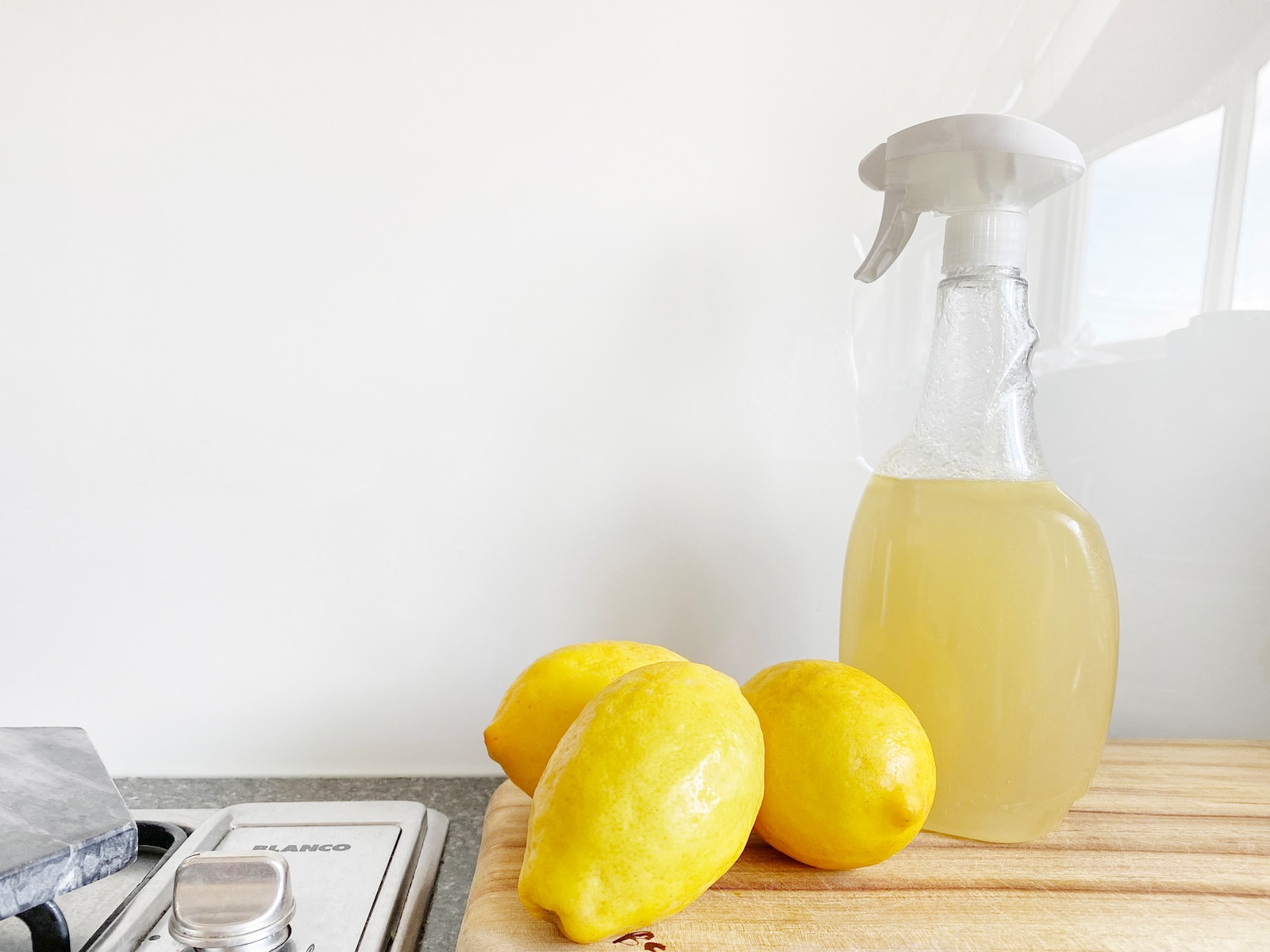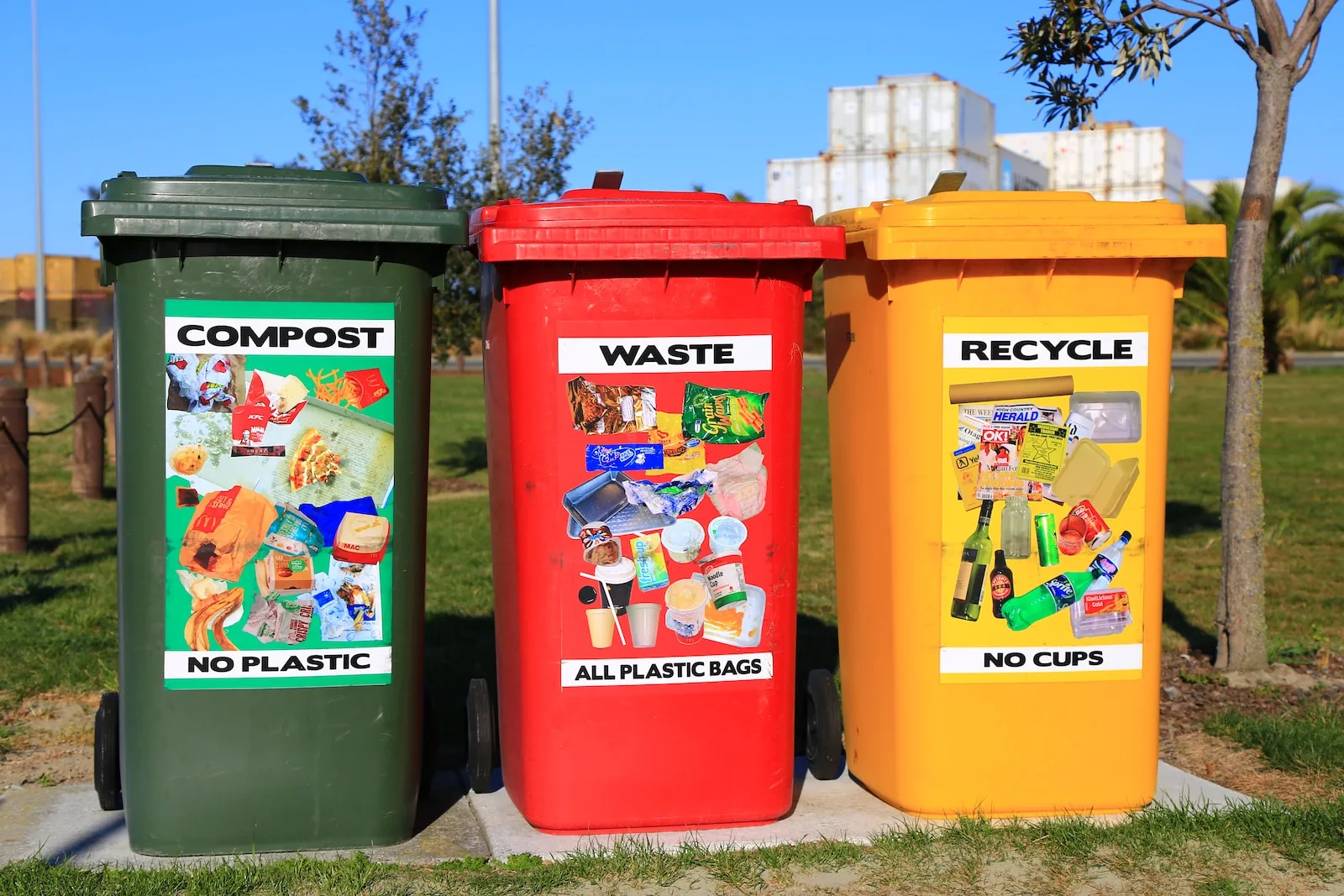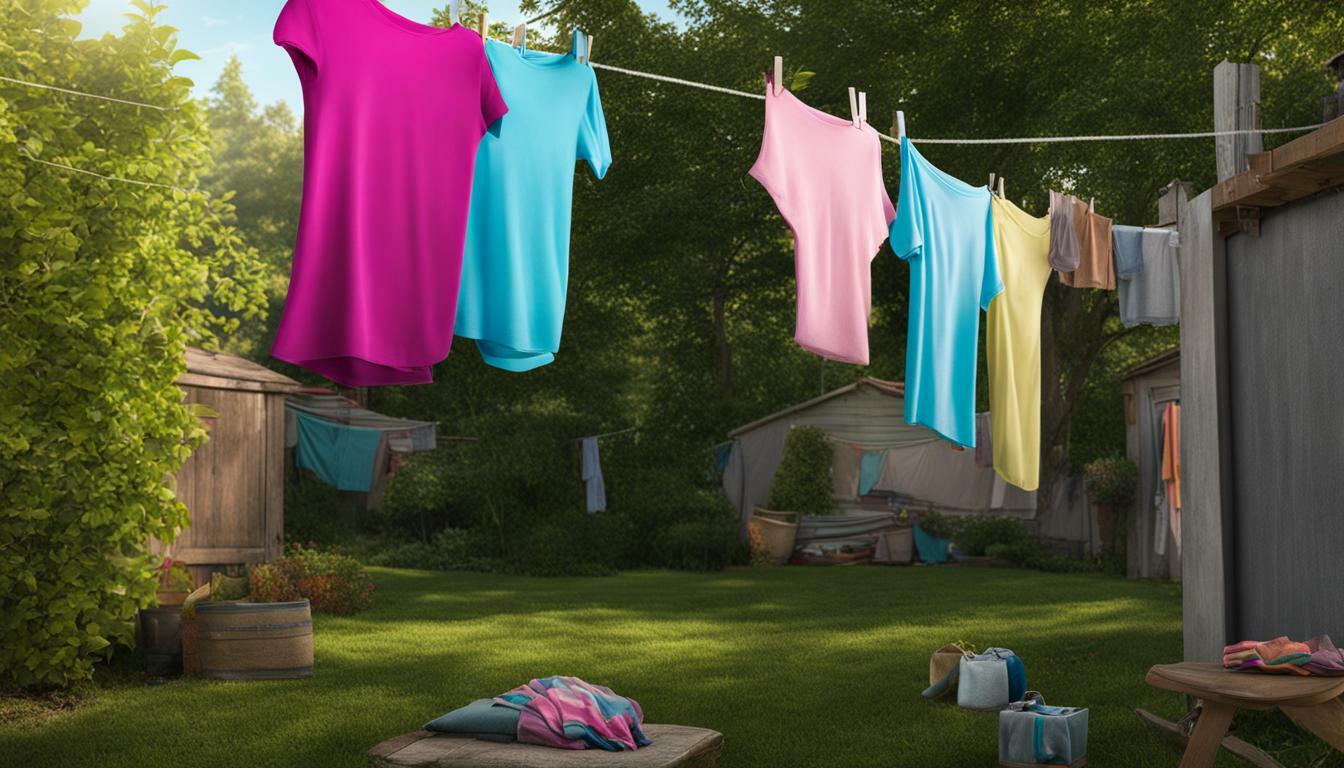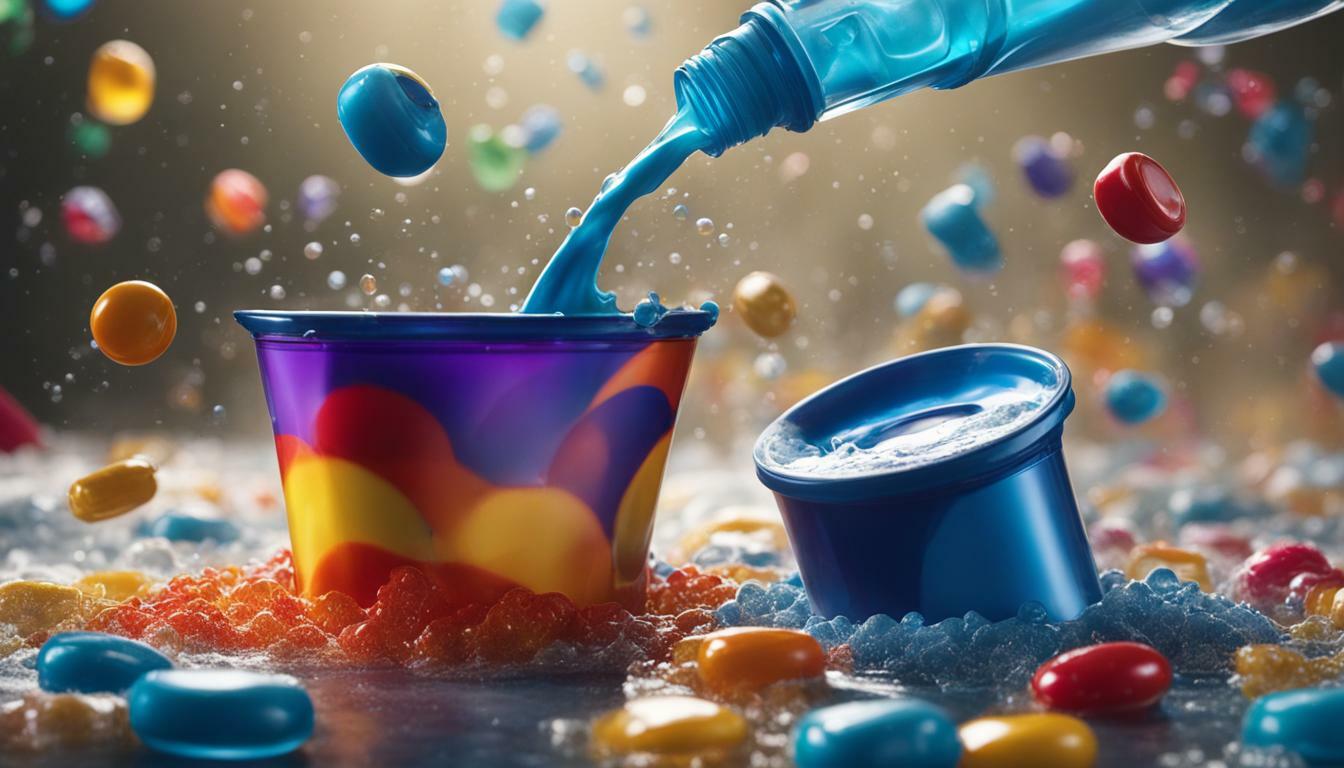When it comes to cleaning your home, there are numerous options available, but natural cleaning solutions have become increasingly popular in recent years. Two of the most commonly used natural solutions for cleaning are vinegar and lemon juice. Although they share some similarities, there are also distinct differences between these two options. Understanding these differences can help you choose the best solution for your cleaning needs.
Vinegar and lemon juice are natural, non-toxic cleaning options that provide eco-friendly alternatives to traditional cleaning products. Both have acidic properties that can help to remove dirt, grime, and stains from various surfaces around your home. However, vinegar and lemon juice differ in terms of their effectiveness, scent, and practicality for certain cleaning tasks.
Key Takeaways:
- Vinegar and lemon juice are natural cleaning solutions that offer eco-friendly alternatives to traditional cleaning products.
- Both vinegar and lemon juice have acidic properties, making them effective for removing dirt, grime, and stains from various surfaces.
- While they share some similarities, there are differences between vinegar and lemon juice in terms of effectiveness, scent, and practicality for certain cleaning tasks.
Vinegar for Cleaning: A Natural Household Remedy
If you’re looking for a natural cleaning solution that’s effective, affordable, and widely available, look no further than vinegar. This household remedy has been used for centuries as a cleaning agent thanks to its acidic properties and antibacterial qualities. Here’s what you need to know about cleaning with vinegar:
Versatility
Vinegar is an incredibly versatile cleaning solution that can be used on a wide range of surfaces. From kitchen counters and floors to bathroom tiles and windows, vinegar can help wipe away dirt and grime while leaving a clean and fresh scent. It can even be used to tackle tough stains on clothing or carpets.
Effectiveness
When it comes to removing dirt and disinfecting surfaces, vinegar is highly effective. Its acidic nature helps it break down grime and bacteria, making it an ideal solution for those who want to avoid harsh chemical cleaners. Additionally, vinegar is a deodorizer and can help remove lingering smells from your home.
Eco-Friendliness
Vinegar is a natural, non-toxic cleaning solution that won’t harm the environment or your health. Unlike many commercial cleaners that contain harmful chemicals, vinegar is safe to use around children and pets and won’t release harmful fumes into the air.
How to Use It
When using vinegar as a cleaning solution, it’s important to dilute it with water to avoid damaging certain surfaces. A mix of one part vinegar to one part water is a good place to start, but you may need to adjust the ratio based on the level of dirt or grime you’re trying to remove. You can also add essential oils like lemon or tea tree to give your cleaning solution a pleasant scent.
Overall, vinegar is a powerhouse cleaning solution that’s perfect for those who want to keep their homes clean and fresh without resorting to harsh chemical cleaners. Give it a try and see the difference it can make in your cleaning routine!
Lemon Juice for Cleaning: Nature’s Cleaning Agent
When it comes to natural cleaning solutions, lemon juice is a household favorite. Its acidic nature and fresh scent make it a versatile and effective cleaning agent for various surfaces. Here are some tips for cleaning with lemon juice:
- Removing Stains: Lemon juice is particularly useful for removing stains on clothing and fabrics. Simply apply lemon juice to the stain and let sit for 5-10 minutes before washing as usual. For tougher stains, add salt to the lemon juice for an extra boost.
- Cutting Through Grease: Lemon juice’s acidity makes it an excellent grease cutter. Use it to clean greasy stovetops, kitchen appliances, and even car engines.
- Providing a Fresh Scent: Lemon juice not only cleans but also leaves a fresh scent behind. Use it to deodorize and freshen up the air in your home.
However, it’s important to note that lemon juice may not be suitable for all cleaning tasks. Its acidity can cause damage to certain materials such as marble or granite. It’s also not recommended for use on wood or brass surfaces as it can cause discoloration.
Overall, lemon juice is a natural and effective cleaning solution that can be used in a variety of household cleaning remedies. Just make sure to take precautions and use it appropriately for optimal results.
Choosing the Best Solution for Your Cleaning Needs
When it comes to cleaning your home, it’s essential to choose the right product for the job. Using eco-friendly cleaning options not only protects your health but also helps reduce your impact on the environment. Vinegar and lemon juice are two popular natural cleaning solutions that can effectively clean a variety of surfaces.
If you’re looking for a versatile and budget-friendly option, vinegar is an excellent choice. It’s a natural disinfectant that can cut through grime and grease, making it ideal for kitchen and bathroom surfaces. Additionally, vinegar has a long shelf life, so you can save money in the long run by buying it in bulk.
On the other hand, if you’re after a fresh scent, lemon juice is a great option. It has a pleasant aroma that can leave your home smelling clean and fresh. Lemon juice is also effective in removing stains and grime from surfaces. However, it’s important to note that lemon juice is acidic, which can damage certain surfaces if not diluted properly.
When deciding between vinegar and lemon juice, consider the type of surface you’re cleaning, the level of dirt or grime, and your personal preferences. If you have allergies or sensitivities, you may want to explore other non-toxic cleaning options such as baking soda or castile soap.
- Eco-friendly cleaning options are essential for protecting your health and the environment.
- Vinegar is a versatile and budget-friendly option that can clean various surfaces.
- Lemon juice is an effective option that provides a fresh scent but should be used with caution on certain surfaces.
- Consider factors such as surface type, dirt level, and personal preferences when choosing between vinegar and lemon juice.
- Explore other non-toxic cleaning options if you have allergies or sensitivities.
Practical Tips for Using Vinegar and Lemon Juice as Cleaners
If you’re looking for eco-friendly and natural cleaning solutions, vinegar and lemon juice are excellent options. Here are some practical tips for using them effectively:
Cleaning with Vinegar
Vinegar is a versatile cleaner that can be used on various surfaces. Here are some tips to keep in mind:
- Always dilute vinegar with water before use to prevent damage to surfaces.
- A 1:1 ratio of vinegar and water is a good starting point for most cleaning tasks.
- For tough stains or grime, you can use a stronger solution of vinegar and water.
- Apply the solution using a spray bottle or a cloth and wipe in a circular motion.
- For hard-to-reach areas, soak a cloth in the solution and place it on the surface for a few minutes before wiping away.
Cleaning with Lemon Juice
Lemon juice is a natural cleaner that provides a fresh scent. However, it’s not suitable for all surfaces. Here are some tips to keep in mind:
- Like vinegar, lemon juice should be diluted with water before use.
- For general cleaning tasks, a 1:1 ratio of lemon juice and water is effective.
- Use lemon juice to remove stains from cutting boards or to clean greasy surfaces in the kitchen.
- Don’t use lemon juice on marble or other natural stones as it can cause damage.
- Apply lemon juice using a spray bottle or a cloth and wipe in a circular motion.
Remember to always test a small, inconspicuous area before using vinegar or lemon juice on a surface to ensure it doesn’t cause damage.
By following these practical tips, you can effectively clean your home using natural and eco-friendly solutions like vinegar and lemon juice.
The Versatility of Vinegar and Lemon Juice in Cleaning
If you’re seeking natural cleaning solutions for your home, look no further than vinegar and lemon juice. These two ingredients offer a versatile and effective way to clean a wide variety of surfaces and items. Here are just a few examples:
| Surface/Object | Cleaning Solution |
|---|---|
| Kitchen countertops | Vinegar |
| Bathroom tiles | Lemon juice |
| Microwave | Vinegar |
| Glass windows | Lemon juice |
| Clothing stains | Vinegar or lemon juice |
The above examples are just a few of the many uses for vinegar and lemon juice in cleaning. They are multi-purpose solutions that can be used in a variety of ways to provide effective and natural cleaning. Plus, using these solutions can save you money and reduce your impact on the environment.
To get the most out of these two natural cleaning solutions, it’s important to understand their specific uses and strengths. Vinegar is best used for removing stains, deodorizing surfaces, and disinfecting. Lemon juice, with its acidic nature, is particularly effective for cutting through grease and providing a fresh scent.
Remember to always dilute vinegar and lemon juice before use and apply with a cloth or spray bottle. Avoid using on sensitive surfaces such as marble or granite, as the acidity may damage these materials. By incorporating vinegar and lemon juice into your cleaning routine, you can simplify your life while reducing your exposure to harsh chemicals.
Vinegar vs. Lemon Juice: Which is Better for Cleaning?
As you have learned in this article, both vinegar and lemon juice are natural and effective cleaning solutions. So, which one should you choose?
The answer is: it depends. The choice between vinegar and lemon juice for cleaning depends on your preferences and specific cleaning needs.
If you’re looking for a natural solution that is effective in removing stains, deodorizing, and disinfecting various surfaces, vinegar is your best bet. It’s also a more cost-effective option and has a longer shelf-life than lemon juice.
On the other hand, if you’re looking for a cleaning solution with a fresh scent and one that’s effective in cutting through grease, lemon juice is your go-to. However, it may not be the best choice for certain surfaces such as marble or granite due to its acidic nature.
Consider the Surface to Be Cleaned
When choosing between vinegar and lemon juice for cleaning, it’s important to consider the surface you’ll be cleaning. Vinegar is a great all-purpose cleaner, but it’s not recommended for surfaces such as granite or marble, as the acidity can cause damage.
Lemon juice, while effective in cutting through grease and grime, may not be suitable for surfaces with delicate finishes as it could cause discoloration.
Try Green Cleaning Alternatives
If you have allergies or sensitivities to vinegar or lemon juice, there are other eco-friendly cleaning alternatives available. These include baking soda, castile soap, and essential oils.
Baking soda is a versatile cleaner that can be used to remove stains and odors. Castile soap is an all-purpose cleaner that’s gentle on surfaces and can be used on everything from floors to clothes. Essential oils such as tea tree and lavender are also effective in cleaning and provide a pleasant scent.
It’s important to note that while these alternatives are eco-friendly and non-toxic, they may not be as effective as vinegar or lemon juice in certain cleaning tasks.
Conclusion
In conclusion, the difference between vinegar and lemon juice for cleaning comes down to personal preferences and specific cleaning needs. Both are natural and effective options that offer a range of benefits.
By considering the surface to be cleaned and trying out eco-friendly alternatives, you can make an informed decision and incorporate these natural cleaning solutions into your routine. Happy cleaning!
FAQ
Q: Can vinegar be used to clean all surfaces?
A: Vinegar is a versatile cleaner that can be used on many surfaces, including glass, countertops, and floors. However, it is not recommended for use on marble, granite, or other porous surfaces, as the acidity can cause damage.
Q: Is lemon juice safe to use on all surfaces?
A: Lemon juice can be used on most surfaces, but it is important to spot test first, especially on delicate or porous materials. The acidity of lemon juice may cause discoloration or damage in some cases.
Q: Can vinegar or lemon juice remove tough stains?
A: Both vinegar and lemon juice have natural stain-removing properties and can be effective on many stains. However, for tough stains, it may be necessary to use additional cleaning methods or products.
Q: Do vinegar and lemon juice leave a strong odor?
A: Vinegar has a strong odor that dissipates quickly, especially when properly diluted. Lemon juice leaves a fresh scent that is often preferred over the smell of vinegar.
Q: Can vinegar or lemon juice be harmful to pets?
A: While vinegar and lemon juice are generally safe for pets, it is best to keep them away from surfaces that pets may come into contact with immediately after cleaning. It is also advisable to consult with a veterinarian if you have concerns about using these products around your pets.
 Skip to main content
Skip to main content


